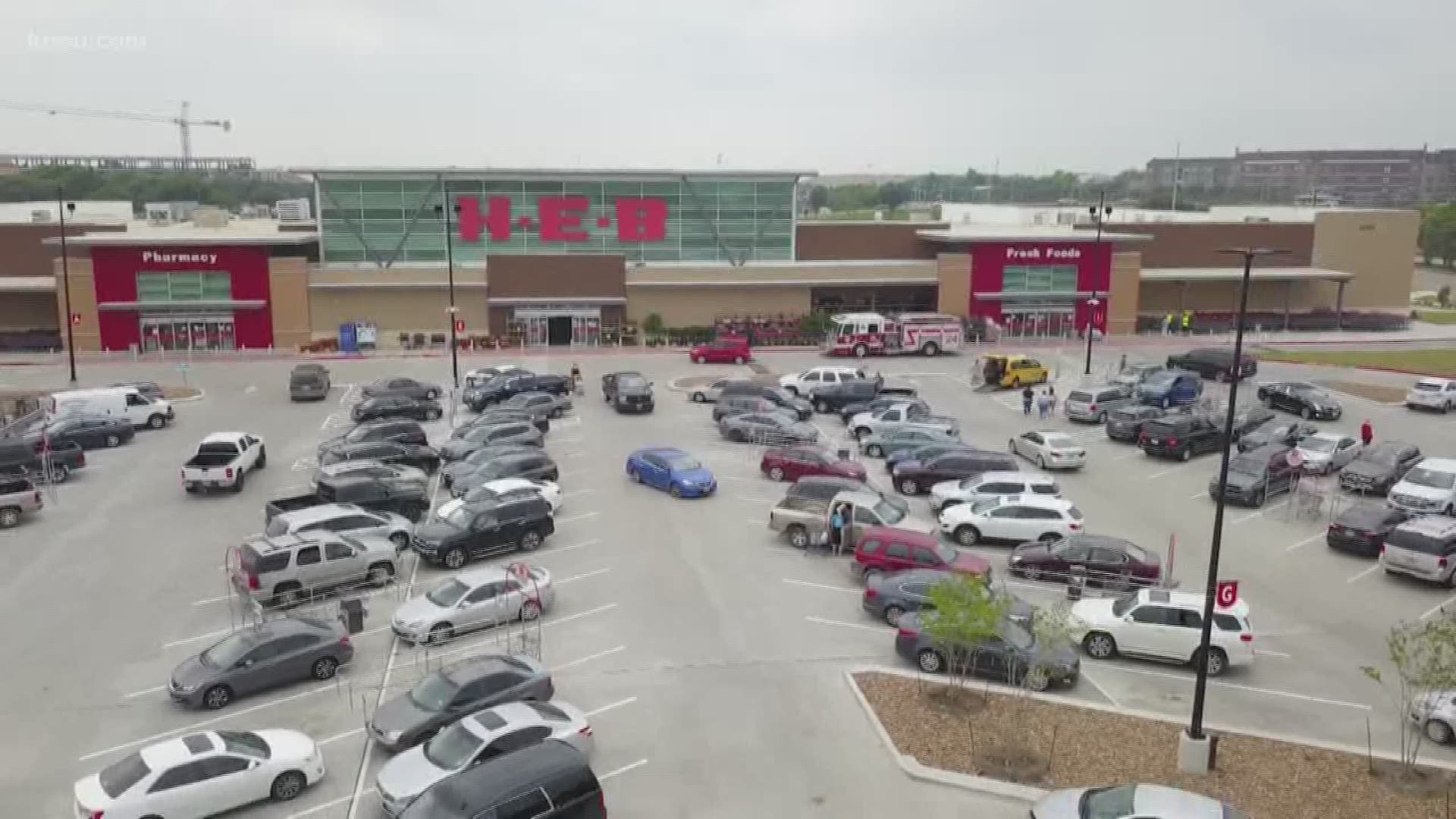The H-E-B store on Highway 6 in Sugar Land is where the Texas-based chain said its latest employee to come down with COVID-19 worked.
It added in a release that all directly affected partners were notified and that the store itself was deep cleaned and sanitized.
"We wake up every day paranoid about all the things that could possibly go wrong,” said H-E-B President Scott McClelland in a previous interview.
The chain told us it has elevated COVID-19 cleaning protocols.
"We’ve also had a handful of folks that have been diagnosed as positive," said Joe Kelley, president of Kroger's Houston division. "Obviously, for HIPPA reasons, we can’t discuss it. But what I can tell you is we’ve had a protocol in place.”
Kroger outlines many of its safety regimens in an online video.
"We are ensuring proper cleaning procedures are followed, installing plexi-glass partitions at check stands and other locations throughout the store,” said the company's CEO in the video.
Constant sanitizing is also occurring, especially on high-contact surfaces.
And signage, combined with limiting the number of customers inside the store at one time, is meant to help enhance social distancing.
In addition to Kroger and H-E-B, we checked with a number of other major chains which have similar COVID-19 standards.
In many cases, you may see associates wearing masks and gloves and they’re immediately directed to stay home if, at any point, they feel ill.
That's something Kelley says should also apply to customers.
“I think it’s very important that you shop with just one family member," said Kelley. "Don’t be bringing three, four, five folks into the grocery store. It doesn’t make a heck of a lot of sense, not only for your family, but for other families as well as our cashiers.”
He said some measures could remain in place after the current crisis.
"My hope is that it ends soon and we can get back to some sort of normalcy," said Kelley. "I think normalcy might be a little bit different.”
Here are links to COVID-19 protocols for different chains: H-E-B | Kroger | Randalls | Walgreens | Walmart
Coronavirus symptoms
The symptoms of coronavirus can be similar to the flu or a bad cold. Symptoms include a fever, cough and shortness of breath, according to the Centers for Disease Control. Some patients also have nausea, headaches and stomach issues.
Most healthy people will have mild symptoms. A study of more than 72,000 patients by the Centers for Disease Control in China showed 80 percent of the cases there were mild.
But infections can cause pneumonia, severe acute respiratory syndrome, kidney failure and even death, according to the World Health Organization. Older people with underlying health conditions are most at risk for becoming seriously ill. However, U.S. experts are seeing a significant number of younger people being hospitalized, including some in ICU.
The CDC believes symptoms may appear anywhere from two to 14 days after being exposed.
Human coronaviruses are usually spread through...
- The air by coughing or sneezing
- Close personal contact, such as touching or shaking hands
- Touching an object or surface with the virus on it, then touching your mouth, nose or eyes before washing your hands.
Help stop the spread of coronavirus
- Stay home when you are sick.
- Eat and sleep separately from your family members
- Use different utensils and dishes
- Cover your cough or sneeze with your arm, not your hand.
- If you use a tissue, throw it in the trash.
- Follow social distancing
Lower your risk
- Wash your hands often with soap and water for at least 20 seconds. If soap and water are not available, use an alcohol-based hand sanitizer.
- Avoid touching your eyes, nose, and mouth with unwashed hands.
- Avoid close contact with people who are sick.
- Clean and disinfect frequently touched objects and surfaces.
- If you are 60 or over and have an underlying health condition such as cardiovascular disease, diabetes or respiratory illnesses like asthma or COPD, the World Health Organization advises you to try to avoid crowds or places where you might interact with people who are sick.
Get complete coverage of the coronavirus by texting 'FACTS' to 713-526-1111.

